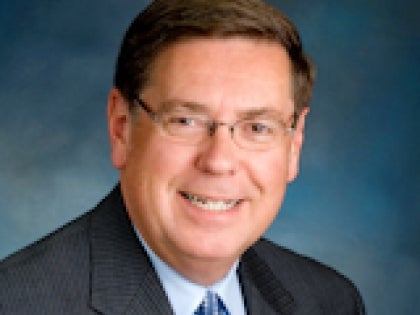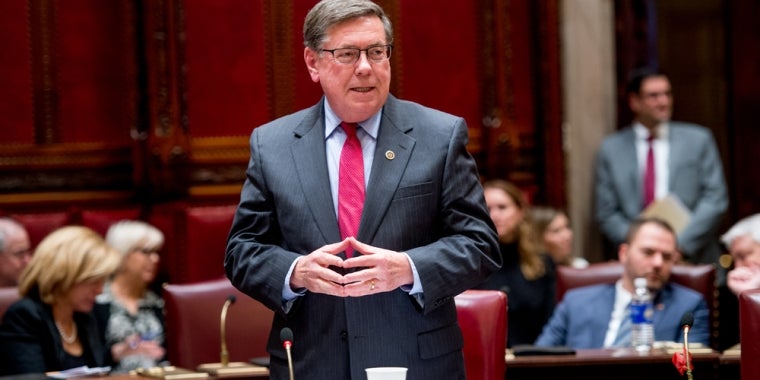
Seward Discusses Comptroller Vote
"The news has been filled with stories in the last week about the choice of a new state comptroller to fill the position vacated by Alan Hevesi, who resigned after pleading guilty to theft.
"I voted for Assemblyman DiNapoli.
"The state constitution specifies that the state legislature will select a comptroller when a vacancy occurs. As a member of the Senate Finance Committee, I joined a panel of other legislators and three former comptrollersto interview various candidates.
"The senate majority leader, assembly speaker and governor --"three men in a room" -- had agreed that the three former comptrollers would recommend candidates, and subsequent to their recommendation of three candidates, there was disagreement over whom that list would include and how many names it would include.
"Those arguing that the agreement to select from a list constitutes "reform" forgot one thing: The agreement was developed by "three men in a room," not rank and file legislators. Choosing from a predetermined list was the ultimate backroom deal. When the legislature as a whole became involved, 212 legislators rejected the approach of three men and opted to order from the whole menu.
"Included on the screening panel were three former state comptrollers -- two of whom had service as state legislators before becoming comptroller and one of whom was a former elected county executive. A state legislator serving as comptroller is more the norm than not in recent history. Mr. Hevesi, who just resigned, was a former state assemblyman. In fact, the voters of the state returned him to office in November. In 2002, he faced a former assemblyman, John Faso, who garnered about 48 percent of the vote that year in losing to Hevesi. Clearly, the voters have not rejected the concept of having a former legislator in the comptroller's chair.
"Our current process produced former comptroller Carl McCall, who by many financial observers has been adjudged an effective comptroller, and for now, we have the process we have.
"The current process may be flawed in placing so significant a position as our state's chief financial officer -- and the attorney general in the case of vacancy in that office -- in the hands of 212 legislators. Maybe it is time to assess how we can develop an improved process for choosing a comptroller and attorney general. Should we have a line of succession, like we do in the governor's office, or put the decision back into the hands of the voters?
"I trust the voters. That's why I have signed onto legislation that would change the process for filling vacancies in the comptroller's and attorney general's offices by putting the vacancy back on the ballot for a decision by the people of the state, not elected legislators, in a special election. The alternative, and one certainly worth looking at, is filling the position by appointment until the next election. That would give the voters a chance to fill the position and would remove the added expense of a special election.
"Some have criticized the legislature for not choosing from the three "finalists" proposed by the panel of three former state comptrollers. I am not bound as a legislator by, nor is there some special virtue in, selecting from a list developed by three former comptrollers and endorsed only by the governor. I cast my own vote, whether the legislative leaders have agreed on a list or not. One of the jobs of the comptroller is to audit state agencies, which are run by the governor, and in my view it is not a good idea to have a comptroller handpicked by one man whose agencies and actions the comptroller is called upon to audit, evaluate and investigate.
"New York state legislators have been good enough to be congressmen, U.S. senators, and even presidents. I certainly think one can -- again -- function as comptroller.
###



